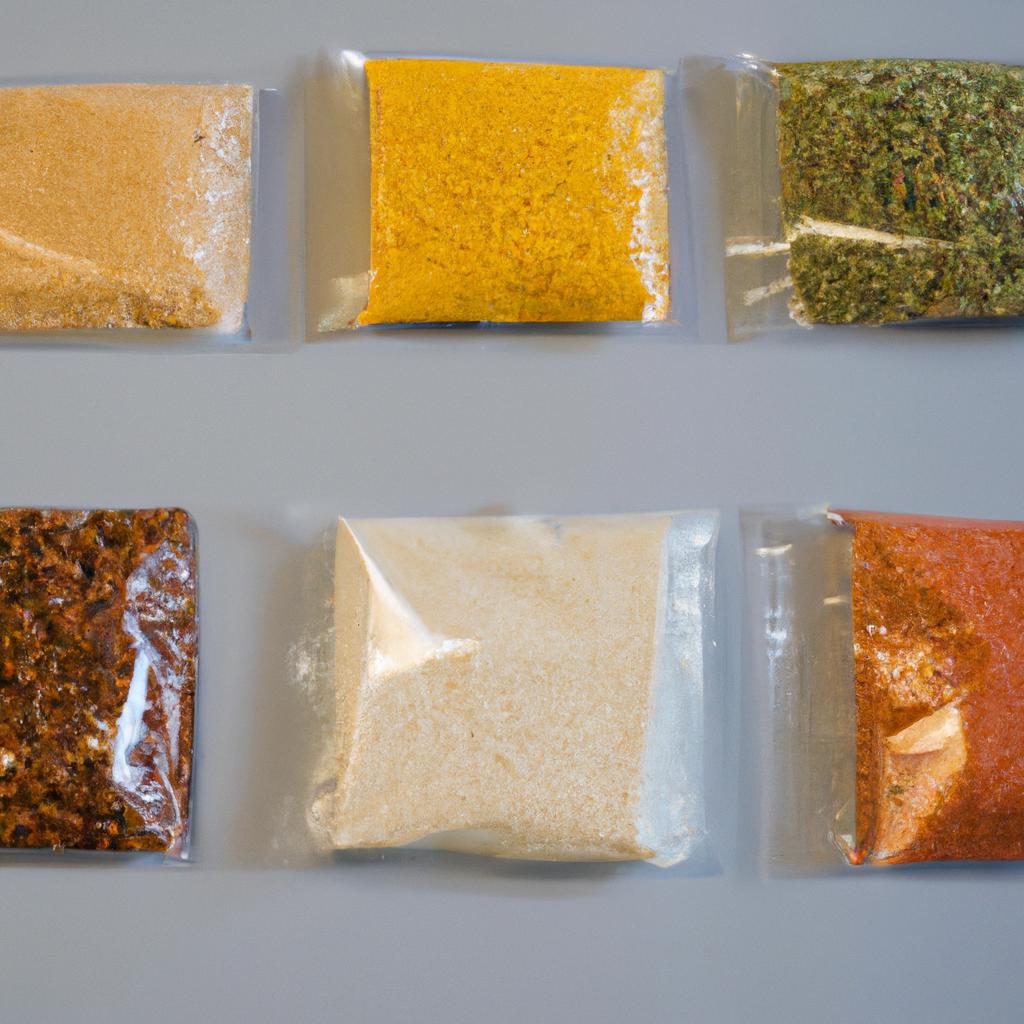Sustainable Packaging Solutions for Plant-Based Proteins: Reducing Environmental Impact in the Food Industry
Sustainable Packaging Solutions for Plant-Based Proteins: Reducing Environmental Impact in the Food Industry
The food industry evolves rapidly, especially regarding plant-based proteins. As consumers seek eco-friendly options, sustainable packaging becomes vital. This blog explores sustainable packaging solutions for plant-based proteins and their environmental benefits.
Importance of Sustainable Packaging
Sustainable packaging minimizes environmental impact. It includes recyclable, biodegradable, or renewable resource materials. The rising demand for plant-based proteins underscores the need for sustainable packaging.
Transitioning to sustainable packaging reduces waste. It also lowers production and disposal-related carbon emissions. Companies adopting sustainable practices attract eco-conscious consumers. Sustainable packaging fosters brand loyalty and promotes environmental responsibility.
Types of Sustainable Packaging Solutions
Biodegradable Packaging
Biodegradable packaging decomposes naturally. Microbial action breaks it down, leaving no harmful residues. Many companies use materials like PLA (polylactic acid) or paper-based solutions from renewable resources.
Brands using biodegradable packaging significantly reduce landfill waste. Consumers value products that reflect their values. This packaging choice showcases a commitment to environmental sustainability.
Recyclable Packaging
Recyclable packaging provides another eco-friendly option. Many plant-based protein brands utilize materials like PET or cardboard. These materials can recycle multiple times, minimizing the need for new resources.
Encouraging consumers to recycle fosters a circular economy. Brands can educate users about proper recycling practices. This education increases the likelihood of consumer recycling.
Minimalist Packaging
Minimalist packaging reduces material use while maintaining product integrity. Brands can adopt simple designs and fewer materials for their packaging. This approach minimizes waste and often lowers production costs.
Consumers appreciate minimalist packaging for its simplicity. It emphasizes product quality and reduces environmental impact, making it attractive for brands and consumers.
Innovations in Sustainable Packaging
Plant-Based Plastics
Plant-based plastics gain popularity in the food industry. These renewable materials reduce reliance on fossil fuels. They can mimic traditional plastics while remaining eco-friendly.
Many companies invest in plant-based plastics for packaging needs. These materials can be biodegradable or recyclable, offering brands flexibility. This innovation provides a sustainable alternative appealing to health-conscious consumers.
Edible Packaging
Edible packaging represents a groundbreaking sustainability innovation. It eliminates waste by allowing consumers to eat the packaging. Companies experiment with seaweed, rice, or potato starch for this purpose.
Edible packaging reduces waste and enhances user experience. Consumers enjoy the novelty of eating their packaging. This approach aligns with the growing sustainability trend in the food industry.
Smart Packaging
Smart packaging incorporates technology to enhance sustainability. It can monitor freshness, reduce waste, and improve supply chain efficiency. Brands can provide consumers with real-time product information using smart packaging.
Smart packaging solutions cut food waste and boost sustainability. They enhance consumer experience while promoting responsible consumption. This innovation presents exciting opportunities for plant-based protein brands.
Health Benefits of Plant-Based Proteins
Beyond sustainability, plant-based proteins offer numerous health benefits. They provide essential nutrients and promote overall well-being. Adding plant-based proteins to your diet improves heart health, aids weight management, and supports digestion.
Nutrition Tips
Focus on variety when selecting plant-based proteins. Incorporate legumes, nuts, seeds, and whole grains into meals. This variety ensures a balanced array of nutrients. Experiment with different recipes to keep meals exciting.
Exercise Advice
Combine a plant-based diet with regular exercise for optimal health. Strength training and cardio workouts complement a balanced diet. Aim for at least 150 minutes of moderate aerobic activity weekly. This practice promotes cardiovascular health and enhances overall fitness.
Health Benefits
Plant-based proteins offer numerous health benefits. They often contain fewer saturated fats and more fiber than animal-based proteins. This composition supports heart health and aids digestion. Additionally, plant-based diets may lower chronic disease risks like diabetes and obesity.
Conclusion
Sustainable packaging solutions for plant-based proteins play a crucial role in reducing environmental impact. Brands can select biodegradable, recyclable, or minimalist packaging to align with consumer values. Innovations like plant-based plastics, edible packaging, and smart packaging enhance sustainability while improving consumer experience.
As consumers increasingly seek eco-friendly options, companies must adapt. Adopting sustainable packaging benefits the environment and enhances brand loyalty. By prioritizing sustainability, the food industry can create a healthier planet for future generations.
Below are related products to the topic if you’re interested:
FAQ
What are some benefits of using sustainable packaging for plant-based proteins?
Sustainable packaging minimizes environmental impact by using recyclable, biodegradable, or renewable resource materials. It reduces waste and lowers carbon emissions related to production and disposal. Companies adopting sustainable practices can attract eco-conscious consumers and foster brand loyalty.
What types of sustainable packaging solutions are available for plant-based proteins?
There are several types of sustainable packaging solutions, including biodegradable packaging made from materials like PLA or paper, recyclable packaging using materials such as PET or cardboard, and minimalist packaging that reduces material use. Each option offers unique benefits in reducing environmental impact.
How do innovations in packaging, like plant-based plastics and edible packaging, contribute to sustainability?
Innovations like plant-based plastics reduce reliance on fossil fuels and can be biodegradable or recyclable, providing sustainable alternatives. Edible packaging eliminates waste by allowing consumers to consume the packaging itself, enhancing user experience and aligning with sustainability trends in the food industry.















Post Comment